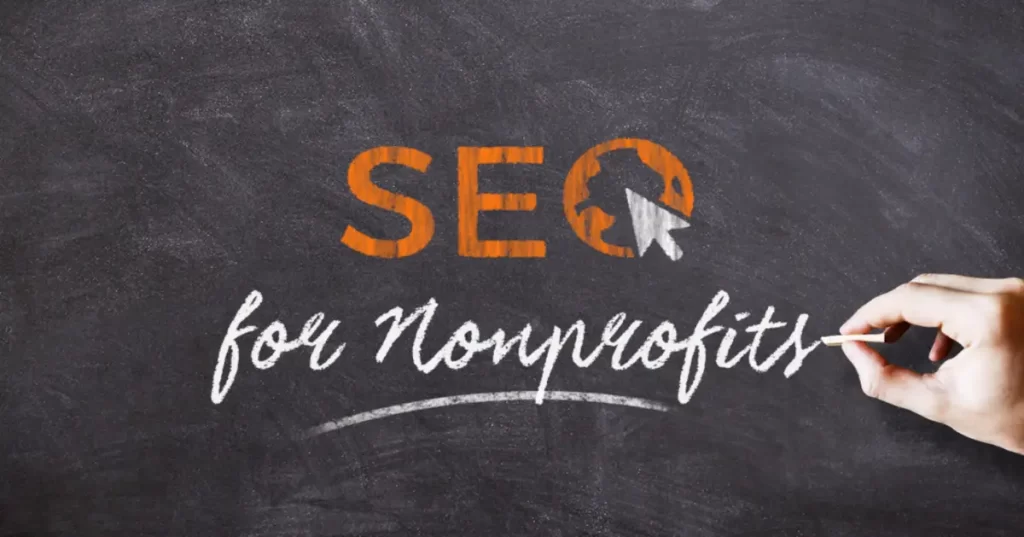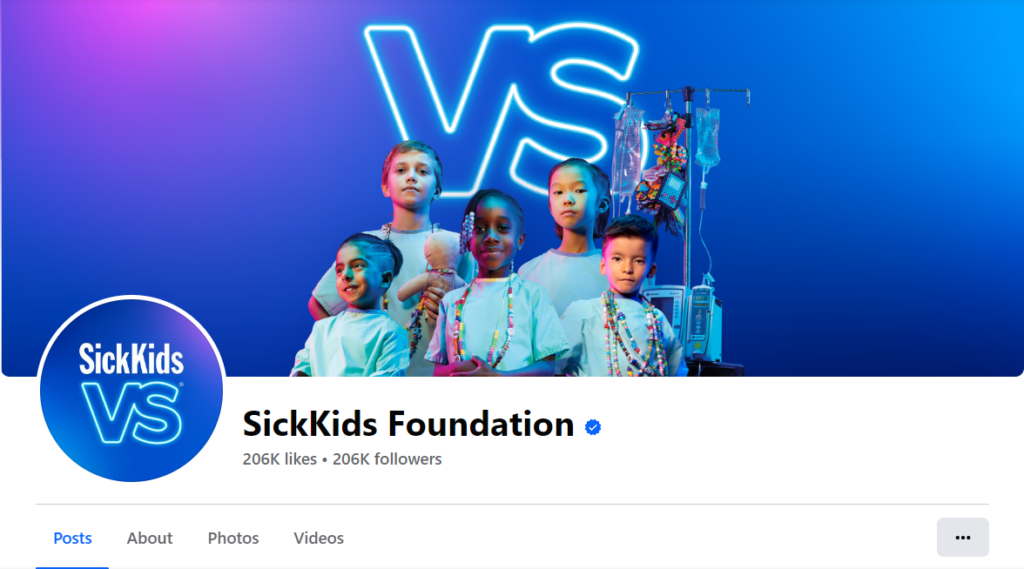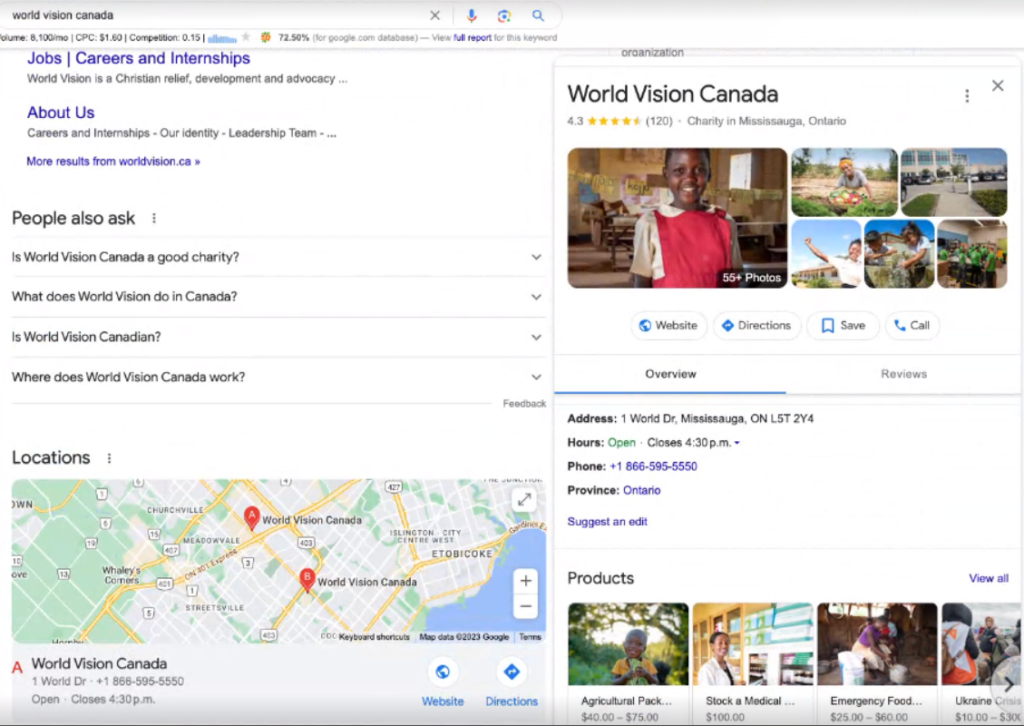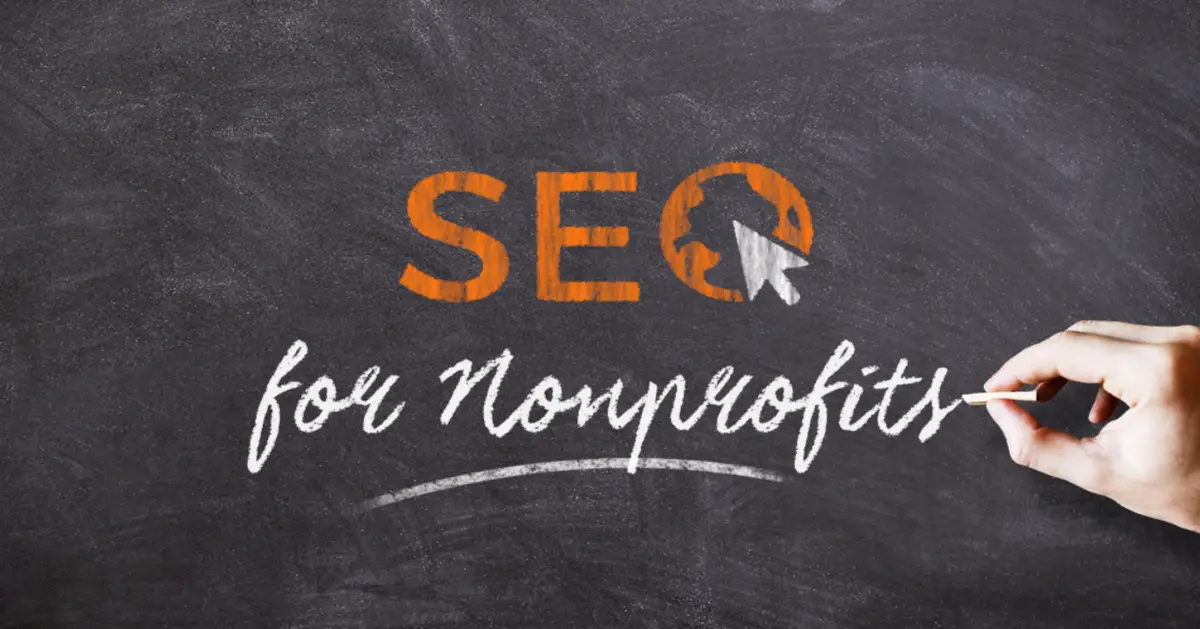
SEO for nonprofits and NGOs isn’t just another digital marketing strategy — it’s your key to unlocking greater online visibility and impact. If you’re a marketing manager of a nonprofit or a non-governmental organization (NGO) and want to increase your online presence, understanding the essential details of the digital landscape is pivotal.
This is where Search Engine Optimization (SEO) becomes invaluable.
In this article, we will unpack actionable strategies and tactics for non-profit SEO. Together, we’ll explore, strategies and tactics, to enhance your visibility and effectively connect with your target audience.
Ready to elevate your nonprofit’s or NGO’s digital footprint? Let’s get started.
Table Of Contents
- How Can SEO Help Nonprofits & NGOs?
- Benefits Of SEO
- Actionable SEO Strategies & Tactics For Nonprofits & NGOs
- Essential SEO Tools For NGOs & Nonprofits
- Frequently Asked Questions
How Can SEO Help Nonprofits & NGOs?
SEO for nonprofits & NGOs is a powerful method that can help your organization increase visibility and reach a wider audience.
By optimizing your website and marketing practices, your nonprofit or NGO can drive up its rankings on search engine results pages (SERPs), getting more site traffic that can be converted into paid donors or volunteers, and helping to get out charitable awareness messages.
Benefits Of SEO
SEO empowers nonprofit organizations to enhance their online presence, connect with a broader audience, and achieve their missions more effectively.
Below, we’ll explore the key benefits of SEO for nonprofits, highlighting how it can drive meaningful change and support their causes.
Competing with Bigger Charities
According to a report by Balancing Everything, giving by foundations rose by 3.4% to $90.88 billion, while giving by corporations saw the highest increase of 23.8% to $21.08 billion in 2021. This indicates a lot of competition among charities for donations and funding.
By implementing an effective SEO strategy, smaller charities can remain competitive against bigger names and ensure their site ranks high for the right keywords. This can help them attract more donors and volunteers, generate more local attention, and make social media more effective.
Helping Donors Find You
Online Giving has increased substantially in recent years, making it more important than ever for donors to find you in online search results.
According to a Google Report (Think With Google), 75% of donors use search engines to find nonprofits.
By optimizing your website and marketing practices, you can drive up your rankings on search engine results pages (SERPs), get more site traffic that can be converted into paid donors or volunteers, and help to get out charitable awareness messages.
Getting Local Recognition
If your charity or nonprofit hosts local events, an effective local SEO strategy can help you rank higher in your area for those looking for volunteer opportunities.
This makes it even more crucial to have robust SEO for nonprofit strategies. As per a survey by Moz, 97% of people learn more about a local company online than anywhere else.
By prioritizing local SEO strategies, such as creating location-specific content and optimizing Google My Business listings, nonprofits can generate more local attention and attract more volunteers.
Improving Social Media Impact
SEO techniques can also complement your social media efforts. This is important because social media is a key way to connect with both existing and potential donors.
Enhancing Mobile-Friendly Design
Effective website design and development is crucial to creating a responsive, mobile-friendly site, aligning with the growing trend of mobile device usage for online searches. This not only enhances user experience but also contributes to improved SEO rankings.
Certainly, as an example, Susan G. Komen®, a nonprofit organization, boasts a beautifully designed mobile-friendly website. This aligns seamlessly with the growing trend of mobile device usage for online searches, providing users with an aesthetically pleasing and user-friendly experience while also boosting their SEO rankings.

Ensuring Website Accessibility
Ensure your website is accessible to all users, including those with disabilities, in line with AODA website compliance. This improves the user experience, aligns with SEO best practices, and widens your potential audience.
Proper web development for nonprofits is essential to the success of your SEO strategies. Ensure that before you embark on SEO efforts to boost your nonprofit, you have a fully functional website.
Actionable SEO Strategies & Tactics For Nonprofits & NGOs
SEO for nonprofits doesn’t have to be overly complex. Here are some SEO strategies and tactics that you can implement to enhance the online presence of your nonprofit and reach a wider audience:
Keyword Research for Your NGO’s Content Strategy
Keyword research serves as the foundation of SEO for nonprofits. It allows Non-Governmental Organizations (NGOs) to identify the specific keywords and phrases that resonate with potential supporters seeking information or causes aligned with the NGO’s mission.
NGOs can then tailor their content and website to include these keywords strategically. For example, an NGO focusing on education for underprivileged children might incorporate keywords like “child education,” “educational opportunities for the disadvantaged,” or “empowering youth through education.”
This ensures that their online presence aligns with the interests and intent of individuals passionate about their cause.
Keyword research forms the cornerstone of both SEO and PPC marketing for nonprofits, as identifying the right keywords helps optimize website content and target ad campaigns effectively.
Whether through organic search results or paid advertisements, aligning with the keywords relevant to your nonprofit’s mission can ensure your message reaches the right audience.
Generate High-Quality Content
A successful SEO for nonprofit campaigns heavily relies on high-quality content. Create engaging, relevant content that resonates with your target audience.
Blog posts, success stories, videos, and infographics are excellent content formats to explore. Consistent updates keep your audience engaged and coming back for more. Consistency in content updates will keep your audience engaged and strengthen your organization’s position as a reliable source of information and a trusted advocate for change.
One nonprofit that excels in curating excellent content for its site is Boys & Girls Clubs of America (BGCA).
Boys & Girls Clubs of America (BGCA) is a nonprofit that excels in generating high-quality content on its website. Their website is a testament to informative, engaging, and relevant content that resonates with their target audience. They leverage various content formats, including success stories, news, and programs, to consistently engage their audience and encourage return visits.
In particular, BGCA’s News & Stories section provides a wealth of information about the organization’s activities and impact. The section features articles on topics such as youth development, education, and community outreach. For example, one recent article highlights the success of BGCA’s “Great Futures Start Here” campaign, which raised over $1 billion to support the organization’s mission.
By providing regular updates on their activities and achievements, BGCA is able to keep their supporters informed and engaged. This commitment to quality content enriches their online presence and strengthens their connection with supporters and beneficiaries.
SEO is an ongoing process for NGOs, and it requires continuous efforts, such as regularly updating the website with fresh and valuable content. Monitoring the SEO efforts through analytics tools provides insights into what’s working and where adjustments are needed. This data-driven approach allows you to stay responsive to your audience’s needs, adapt to changing circumstances, and effectively convey your message in the digital landscape.
Follow On-Page Best Practices
Another important strategy for SEO for nonprofits is to follow on-page best practices. On-page optimization refers to the practice of optimizing individual web pages to rank higher and earn more relevant traffic in search engines.
Here are some key considerations to make in this regard:
- Meta Titles and Descriptions: Ensure that each page on your website has a unique and descriptive meta title and description that accurately reflects the content of the page.
- Alt Text: Use descriptive alt text for all images on your website to help search engines understand what the image is about.
- Header Tags: Use header tags (H1, H2, H3, etc.) to structure your content and make it easier for search engines to understand.
- URL Structure: Use clean, descriptive URLs that accurately reflect the content of each page.
- Internal Linking: Link to other relevant pages on your website to help search engines understand the structure of your site and the relationships between different pages.
By following these best practices, nonprofits can improve their on-page optimization and increase their visibility on search engines.
For instance, Susan G. Komen® stands out in this realm. Their adept use of meta tags effectively encapsulates their mission and services, enticing users to delve deeper into their site. Their use of header tags further ensures a smooth user journey, guiding visitors to relevant and impactful information.

Enhance Off-Page SEO for Better Visibility
Off-page SEO refers to the practice of taking actions outside of your website to improve search engine visibility and traffic. Like On-page SEO for nonprofits, Off-page SEO also requires robust planning and execution. It mainly focuses on aspects, such as:
- Backlinks: Backlinks are links from other websites that point to your website. Backlinks are one of the most important factors in off-page SEO, as they signal to search engines that other websites consider your content valuable and relevant.
You can ask for backlinks from government websites that have relevant resource pages and collaborate with partner sites to get links to your NGO or nonprofit. The more high-quality backlinks you have, the more likely you rank well in search engine results pages (SERPs).
- Social Signals: Social signals refer to the number of likes, shares, and comments your content receives on social media platforms such as Facebook, Twitter, and LinkedIn. You can boost the social signals of your nonprofit by using stellar strategies for digital marketing for nonprofits.

While social signals are not a direct ranking factor for your site, you can leverage them to showcase your work to a global audience, generate interest in your mission, and foster direct communication with supporters. Social media platforms provide a gateway for people worldwide to gain insights into your work, become engaged with your causes, get involved, volunteer, donate, and directly interact with your organizations.
- Brand Mentions: Brand mentions are instances where your brand is mentioned on other websites or social media platforms without a link back to your site.
Being a nonprofit or NGO, you likely receive frequent mentions on the web, making it beneficial to harness this presence for acquiring backlinks. Although brand mentions may not carry the same weight as backlinks, they can still contribute to enhancing your digital presence and boosting your reputation.
- Influencer Marketing: Influencer marketing is like having a super helper for your NGO or nonprofit. It helps you talk about important social and environmental stuff, especially with the younger generation. You team up with influencers, who are like online superstars, to tell more folks about your work. It’s a great way to get a backlink on top of other benefits like letting more people know about your organization, and your cause, find helpers, or ask for support!

Focus on Local SEO
Local SEO is an important strategy for nonprofits to increase their visibility and reach a wider audience.
According to Google, searches for local places with the use of “near me” have grown 150% over the last two years. This means that when searching for anything, including charities or nonprofits to support, they are increasingly expecting local results.
Here are some key considerations to make when focusing on local SEO:
- Claim Your Google Business Profile: Google Business Profile is a free tool that allows you to manage your nonprofit’s online presence across Google, including search and maps.
By claiming your listing, you can ensure that your nonprofit’s information is accurate and up-to-date, making it easier for potential donors and volunteers to find you.

- Optimize Your Website for Local Keywords: Use local keywords in your website content, meta descriptions, and title tags to help search engines understand where your nonprofit is located and what services you offer.
- Get Listed in Local Directories: Getting listed in local directories such as Yelp, Yellow Pages, and Great Nonprofits can help to increase your visibility in local search results.
- Encourage Online Reviews: Encourage your donors and volunteers to leave online reviews of your nonprofit on sites such as Google Business Profile and Yelp. Positive reviews can help to improve your nonprofit’s visibility and reputation in local search results.
Essential SEO Tools For NGOs & Nonprofits
It is essential to have certain tools at your disposal if you are to run a results-driven SEO for nonprofit campaigns. Some of the most crucial tools to get are:
- Keyword Research Tools
Understanding what keywords your target audience is using to search for topics related to your cause is fundamental to SEO success. Tools like Google Keyword Planner, SEMrush, or Moz’s Keyword Explorer can help you identify relevant keywords to target in your content.
- Content Management System (CMS)
A user-friendly CMS like WordPress, Joomla, or Drupal can make creating and optimizing SEO content easier. These platforms often have plugins or extensions that simplify SEO tasks like meta tag optimization and sitemap creation.
- Google Analytics
This free tool provides valuable insights into your website’s performance. It allows you to track website traffic, user behavior, and conversion rates, helping you refine your SEO strategy over time.
- Google Search Console
Another free tool by Google, the Search Console, helps nonprofits monitor how their website appears in Google search results. It provides information about indexing issues, keyword performance, and website errors that need attention.
- Content Creation and Optimization Tools
Tools like Yoast SEO for WordPress or HubSpot’s SEO tools can assist nonprofits in optimizing their web content. Tools offer recommendations on improving on-page SEO elements like titles, meta descriptions, and headings.
- Backlink Analysis Tools
Understanding your backlink profile and monitoring your link-building efforts is crucial for SEO success. Tools like Ahrefs and Moz Link Explorer can help you track your backlinks, analyze your competitor’s strategies, and identify opportunities for building high-quality links.
- Social Media Platforms
Social media marketing, including using platforms like Facebook, Instagram, Twitter, and LinkedIn, plays a pivotal role in enhancing your nonprofit’s online presence, fostering audience engagement, and indirectly bolstering your SEO efforts by driving increased traffic to your website.
Frequently Asked Questions
Absolutely, SEO can significantly expand your nonprofit’s reach. By optimizing your website for search engines, you can attract organic traffic. SEO allows you to target specific keywords and demographics, ensuring your content reaches the right audience. Noah Digital can help your nonprofit reach the right audience, grow in search results, and maximize its online impact.
Measuring the success of your nonprofit’s SEO efforts involves tracking various key performance indicators (KPIs), including Organic Traffic, Keyword Rankings, Conversion Rate, Bounce Rate, and Click-Through Rate (CTR).
It depends on several factors, including your website’s current state, the competitiveness of your niche, and the quality of your SEO efforts. Generally, it can take anywhere from several weeks to several months to notice significant improvements in SEO. However, it’s essential to view SEO as a long-term strategy.
Yes, local SEO can be immensely beneficial for community-based nonprofits. Local SEO strategies can help your organization improve its visibility in local search results, making it easier for people in your community to find your services, events, and volunteer opportunities.

